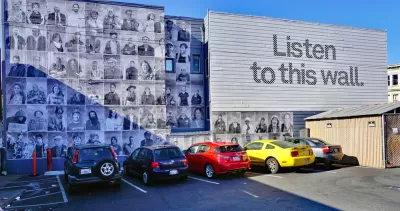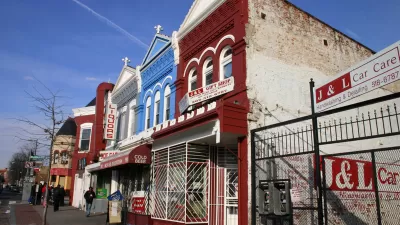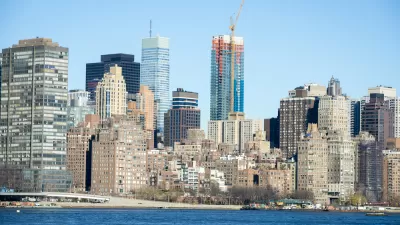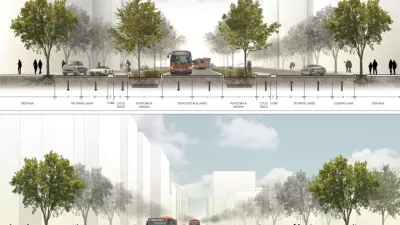Yes, planners have expertise to share, but according to this rather pointed critique, they also sometimes forget that other people do too.

Samuel Stein pens a scathing critique of the contemporary planning discussion, taking planners and other urbanists to task for "plansplaining," which is a riff on the term "mansplaining." Here, Stein defines the practice and identifies the practitioners:
From libertarian “market urbanist” types, we hear that that increasing the housing supply will drive down costs for everyone. From liberal “smart growth” advocates, we hear that including small numbers of quasi-affordable apartments in large scale developments is the best path towards integration and equity. Both sides, however, are telling residents: shut up. We’ve got this.
This is “plansplaining,” or the way planners talk down to residents as if they simply don’t understand the facts, when in reality those “facts” constitute their very lives. It’s the way some planners use their professional expertise as a cudgel against other forms of knowledge when those other perspectives go against prevailing orthodoxy, the politics of the day, or, most importantly, real estate profits.
So, yes: scathing. Stein's critique continues to comparisons of modernist city planners like Moses and Le Corbusier vis-à-vis Jane Jacobs, and calls for planners to head the wisdom of the people who know the city best.
There’s a reason working class New Yorkers get nervous when planners show up and promise big benefits from new development. For years, planners have been telling residents that stoking the market will somehow benefit them too—that allowing developers to build big, expensive, private buildings will translate into lower rents and higher quality of life. It never happens, and instead leads to gentrification and displacement. That’s why communities all over this city—the South Bronx, Chinatown, Long Island City, East New York, Staten Island’s North Shore and beyond—are up in arms about rezonings.
Stein's conclusion calls on planners not to abandon their work and keep their mouths, but "they must drop the presumption that they can explain the city to those who know it intimately."
FULL STORY: As They Rally Around Rezonings, Planners Often ‘Plansplain’

Alabama: Trump Terminates Settlements for Black Communities Harmed By Raw Sewage
Trump deemed the landmark civil rights agreement “illegal DEI and environmental justice policy.”

Planetizen Federal Action Tracker
A weekly monitor of how Trump’s orders and actions are impacting planners and planning in America.

The 120 Year Old Tiny Home Villages That Sheltered San Francisco’s Earthquake Refugees
More than a century ago, San Francisco mobilized to house thousands of residents displaced by the 1906 earthquake. Could their strategy offer a model for the present?

Opinion: California’s SB 79 Would Improve Housing Affordability and Transit Access
A proposed bill would legalize transit-oriented development statewide.

Record Temperatures Prompt Push for Environmental Justice Bills
Nevada legislators are proposing laws that would mandate heat mitigation measures to protect residents from the impacts of extreme heat.

Downtown Pittsburgh Set to Gain 1,300 New Housing Units
Pittsburgh’s office buildings, many of which date back to the early 20th century, are prime candidates for conversion to housing.
Urban Design for Planners 1: Software Tools
This six-course series explores essential urban design concepts using open source software and equips planners with the tools they need to participate fully in the urban design process.
Planning for Universal Design
Learn the tools for implementing Universal Design in planning regulations.
Clanton & Associates, Inc.
Jessamine County Fiscal Court
Institute for Housing and Urban Development Studies (IHS)
City of Grandview
Harvard GSD Executive Education
Toledo-Lucas County Plan Commissions
Salt Lake City
NYU Wagner Graduate School of Public Service





























